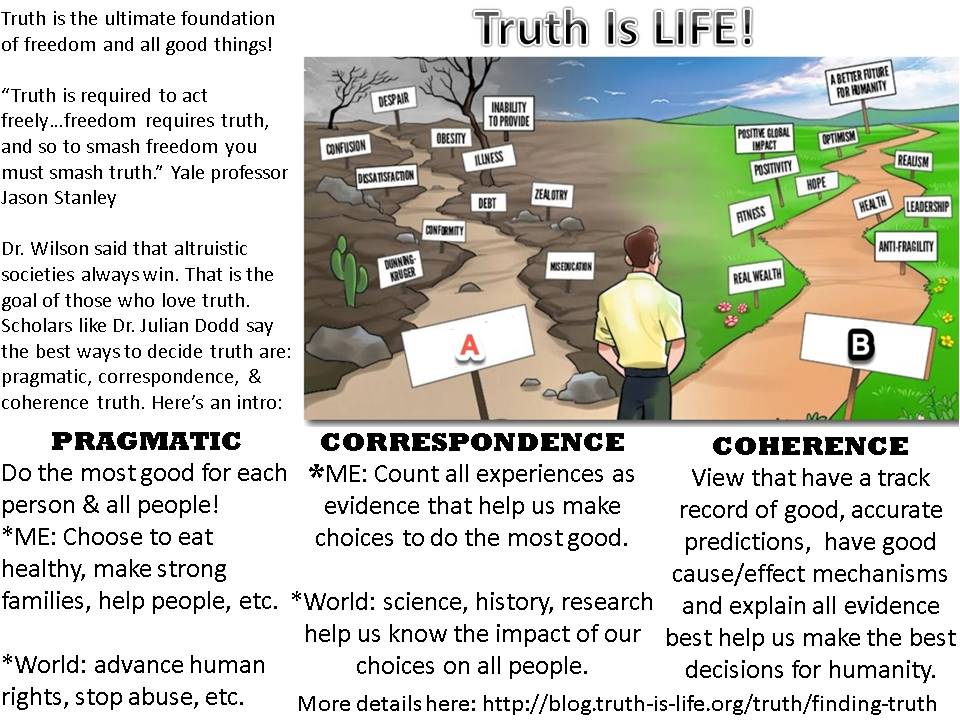
BASIC SYNOPSIS
Nothing is more vital to life, freedom, preventing pain and tragedy than truth and following it. How effectively and quickly people figure out and follow truth has made the difference between success and failure in countless areas, and in many cases made the difference between life and death for many people. In some cases, destinies of individuals and even nations can be determined based on whether they are rooted in truth or not. Some decisions need to be made in minutes or even seconds, but others allow more time for careful study. Delays in following truth can cause major lost opportunities at a minimum, and sometimes lost lives or even lost nations.
Yale professor Jason Stanley has said,
- “Truth is required to act freely…freedom requires truth, and so to smash freedom you must smash truth.”[1]
- Confucius said “The object of the superior man is truth.”
- This is why Jesus said “Truth will set you free.” John 8:32
But how can we be rational and identify truth clearly? Many people think they are rational. Former president Trump claimed he was extremely smart and rational, but he constantly ignored Bible, science and court standards of what is true and does the good for the most people. Many documented frequent false and dishonest claims on his part.
Truth is crucial to know what are the right views, but also to help us realize where we are ignorant and need to learn a lot more. Basically the process of finding truth is somewhat like a sports game. All sides usually have evidence just like all sides usually score points. Every piece of evidence should be fairly recognized. In sports, the side with the most evidence wins. Similarly in rational thinking the side with the most evidence wins and is considered true. If you see any ignoring any experiences as evidence, denying any observations from scientific experiments as evidence, etc. that person is doing the same thing as someone who fixes a game before it is played or has been bribed to be unfair in referring. They may still have evidence, but their conclusions can’t be trusted.
—————————-
WHAT IS EVIDENCE?
—————————-
Here are some more definitions of evidence.
[Evidence can include oral testimony of witnesses, including experts on technical matters, documents, public records, objects, photographs and depositions (testimony under oath taken before trial)…It also includes so-called “circumstantial evidence” which is intended to create belief by showing surrounding circumstances which logically lead to a conclusion of fact….
“oral testimony of witnesses, including experts on technical matters, documents, public records, objects, photographs and depositions”
dictionary.law.com/Default.aspx?selected=671
“A witness may testify to a matter only if evidence is introduced sufficient to support a finding that the witness has personal knowledge of the matter. Evidence to prove personal knowledge may consist of the witness’s own testimony.” Rule 602. Need for Personal Knowledge, www.law.cornell.edu/rules/fre/rule_602
See also: http://dictionary.findlaw.com/definition/evidence.html
Personal testimony is the bedrock of evidence. No evidence can be discovered, gathered, studied, reported, etc. without using witnesses and their senses. Dr. Dolhenty, Voltaire and leading atheists all agree that all evidence comes from our senses and minds. So, gathering evidence from our senses is the first step of finding truth.1 A textbook from Georgia State University says:
Indirect empirical evidence is also quite important. This textbook by ~17 academic authors from universities like Harvard, Princeton, UCLA, Rutgers, Cornell, etc. says:
“indirect empirical evidence can by very strong evidence indeed…”
“The Philosophy of Science”, edited by Richard Boyd, Philip Gasper, J. D. Trout, p. 372
———————————————–
HOW DO WE FIND TRUTH FAIRLY?
———————————————–
Many of the most respected Christian and non-Christian scholars in the study of objective truth agree that there are 3 main effective ways to find truth. Dr. Julian Dodd from the University of Manchester is one of the most recognized philosophers in the world. Dr. Dodd says the “favored candidates” in the area of theories of truth are: “correspondence truth, coherence truth and pragmatic truth.”[2] Dr. Jonathan Dolhenty, a Christian philosopher, concurs, saying that “As far as we know at the present time, there seems to be only three tests of ‘truth’.” He lists them as correspondence truth, coherence truth and pragmatic truth.”[3]
Throughout history, wise people from many cultures have said that truth describes reality accurately and helps us make choices to do the most good for ourselves and all people. Richard Ladd Kirkham (born June 18, 1955) is an American philosopher who has published extensively on the nature of truth including the much cited “Theories of Truth” (MIT Press, 1992) which is the all-time best-selling book in analytic philosophy. About half of all English reading professional professors have his book, and it’s used as a graduate textbook on every continent. Kirkham says that most of the various theories of truth proposed through the centuries are really not all competitors of each other, but complementary. They just answer distinct questions about truth. Some are about the definitions of truth, some are about the sufficient conditions for truth, others are about using linguistics properly to accurately describe reality and truth, others are the actual principles to identify what is true, while others deal with how to distinguish truth from falsehood in reality.[4]
Truth can have many aspects, rational, scientific, personal, relational, emotional, supernatural, material, objective, subjective, permanent, temporary, valuable traditions can be truth in some cases while valuable new modern ideas can be truth in other cases and more. Wise people use these methods as the basis for the best decisions , often every day and all people have used them at times. They use them in deciding what food to eat, what health habits to follow, where to study, what job to do, who to date and marry, what causes to support, how to raise children, how to spend free time and a myriad of others. To use these methods of truth in daily life and ignore them at the worldview level or in controversial topics is a tragic double standard and causes damage to lives.
As above, some of the most respected scholars who specialize in figuring out how to identify truth fairly, say that there are 3 effective ways to find truth: correspondence truth, pragmatic truth, and coherence truth. Here is a very short overview of the 3 methods of truth with the 7 aspects.
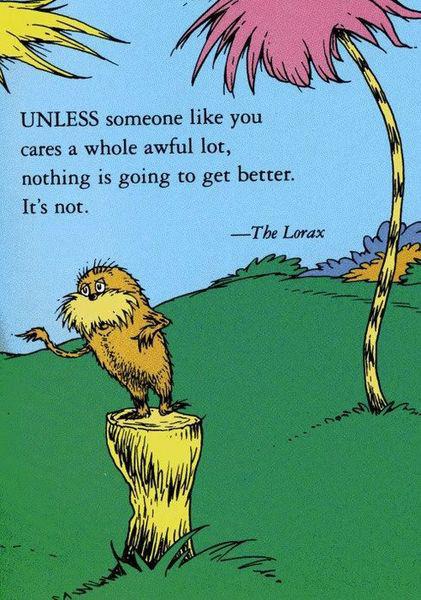
PRAGMATIC TRUTH
1) This truth analyzes every idea and action. It encourages us to make choices to do good for individuals, communities/churches, nations, the world, nature/wildlife and more. These claims about reality enable the highest quality and quantity of life for each person, community, the world’s population and living things in nature as well. They enable people to contribute the most to society and focus on long term benefits for all and when possible short term benefits.
EXAMPLES:
DAILY LIFE: When we choose a restaurant, who to marry, decide to eat healthy food, decide to help people in trouble and many other choices we are using pragmatic truth to decide which choice is better than others.
ACADEMIC EXAMPLE: Harvard health scientists used pragmatic truth to criticize the government’s MyPlate food recommendations (that are influenced by business) and recommend more beneficial science based health habits (these not incidentally confirm principles given by God in the Bible and through Ellen White).[5]
WHY DOES THIS MATTER? If people ignore evidence to do what is best, they or people they love will experience harm and suffering of various kinds. The issue of living lives based on love and altruism vs. selfishness/greed is crucially important because Harvard biologist E. O. Wilson pointed out that while selfish people may succeed in a few areas (such as financial, but lose in others like relationship areas), “A group of altruists will beat a society of selfish individuals every time.” Pamela Weintraub. “#3: E.O. Wilson’s Theory of Altruism Shakes Up Understanding of Evolution”. April 28, 2011. Discover Magazine.
We know from history, science, experience, the Bible and many religions that our choices have major effects on our lives, the lives of others around us and future generations. So people who are moral, godly, people who care about others want to know what choices we can make so that reality will be best for us, our families and communities and also future generations, as well as the environment and natural world that sustains our lives. This is called pragmatic truth and it is arguably the most important truth, the point and purpose towards which all other truths should point. The truths below help us figure this out accurately. They helps us make choices that enables us to contribute the most good to our world and benefit everyone the most.
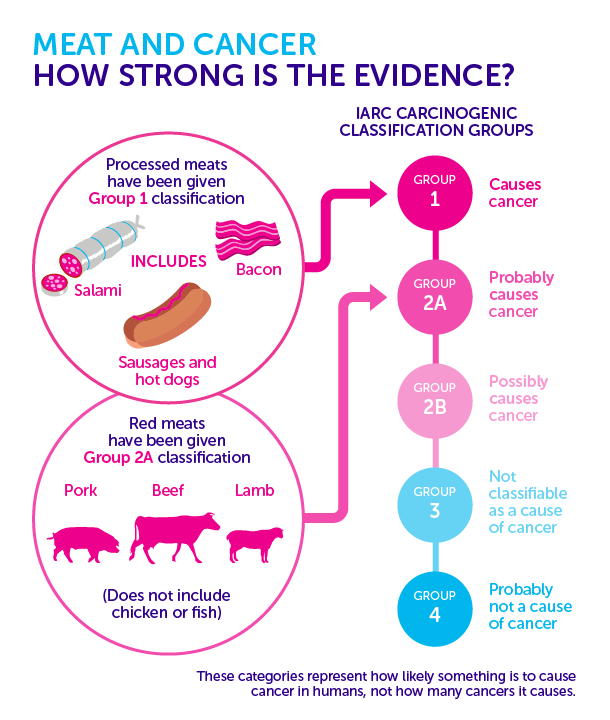
CORRESPONDENCE TRUTH
In order to find out what brings the best life for ourselves and all living things, we have to gather and acknowledge all available evidence from everyone’s experience. This includes evidence from all witnesses (amateur to expert) on all sides, experimental results in science, etc. Every genuine experience must count as evidence (with none excluded) with no denial of any claims of evidence unless they are proven dishonest, etc. to have the most truthful conclusions. The views with the most evidence are followed and ideally used to promote pragmatic truth.
Many leading intellectuals, Christian and non-Christians agree that about the only way to get information about the real world into our brains is through our senses. Christians believe that God created them for this purpose. Correspondence truth tries to gather evidence from people’s experiences so we can understand reality accurately. It does this in 2 major ways.
2) Correspondence truth treats all testimony from witnesses, experiences from everyone as evidence whether they are educated or uneducated, rich or poor, old or young, etc. It uses the court standard of assuming innocence unless guilt, lying or some other deception is proven. Except for unusual cases, it’s just too exhausting and expensive to travel everywhere people have testified about to check.
3) Correspondence truth treats all observations in scientific experiments as evidence. And again it here too assumes innocence unless guilt, lying, corruption due to greed/pride, mistakes in setting up experiments is proven. Except for unusual cases, it’s just too exhausting to run all over the planet checking and rechecking every single fact every scientist claims.
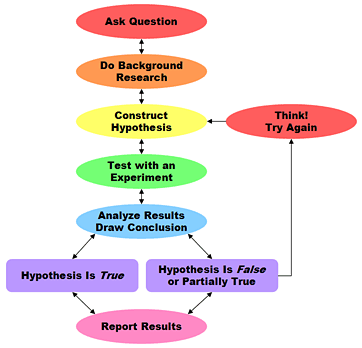
Many leading intellectuals, Christian and non-Christians agree that about the only way to get information about the real world into our brains is through our senses. Christians believe that God created them for this purpose. Correspondence truth tries to gather evidence from people’s experiences so we can understand reality accurately. It does this in 2 major ways.
2) Correspondence truth treats all testimony from witnesses, experiences from everyone as evidence whether they are educated or uneducated, rich or poor, old or young, etc. It uses the court standard of assuming innocence unless guilt, lying or some other deception is proven. Except for unusual cases, it’s just too exhausting and expensive to travel everywhere people have testified about to check.
3) Correspondence truth treats all observations in scientific experiments as evidence. And again it here too assumes innocence unless guilt, lying, corruption due to greed/pride, mistakes in setting up experiments is proven. Except for unusual cases, it’s just too exhausting to run all over the planet checking and rechecking every single fact every scientist claims.
EXAMPLES:
DAILY LIFE: When we gather experiences and testimony from people about which school or church to attend, where to live, how to build thriving marriages/relationships and more so we can decide which one is best, that is correspondence truth.
ACADEMIC EXAMPLE: Millenials and young people are getting poorer. Their salaries are a shocking 20% less than Baby Boomers on average and their net wealth has stunningly plunged from $86,500 to $6,600.[6] This is not at all accidental. It is largely the fault of an economic system/corporate culture based on greed, not the fault of millennials.
WHY DOES THIS MATTER? Many wise intellectuals from many cultures and worldviews agree that truth is accurate descriptions of reality. To know reality accurately is crucial for being able to stay safe in many ways such as driving safely, to find real and true science vs. bad science, to choose the best restaurants/schools/spouse, to know how to spend your money and free time best, to promote successful individuals, communities and nations and everything else. In quite a few cases it means the difference between life and death.
DANGERS: When people start to dismiss experiences of other people as evidence, they are unwilling to acknowledge, detached from or rejecting a significant part of reality. That’s a good sign that their views are not the full truth or they are mostly/completely false and will cause those people and others to lose freedoms and many advantages in life.
COHERENCE TRUTH
4) True claims have the best track record of accuracy in describing reality over time.
5) True claims have clear (or the best) cause and effect mechanisms.
6) True claims makes predictions that are confirmed by observations.
7 True claims explain and harmonize all evidence from all categories best. This often is called a theory, like the theory of relativity or germ theory.
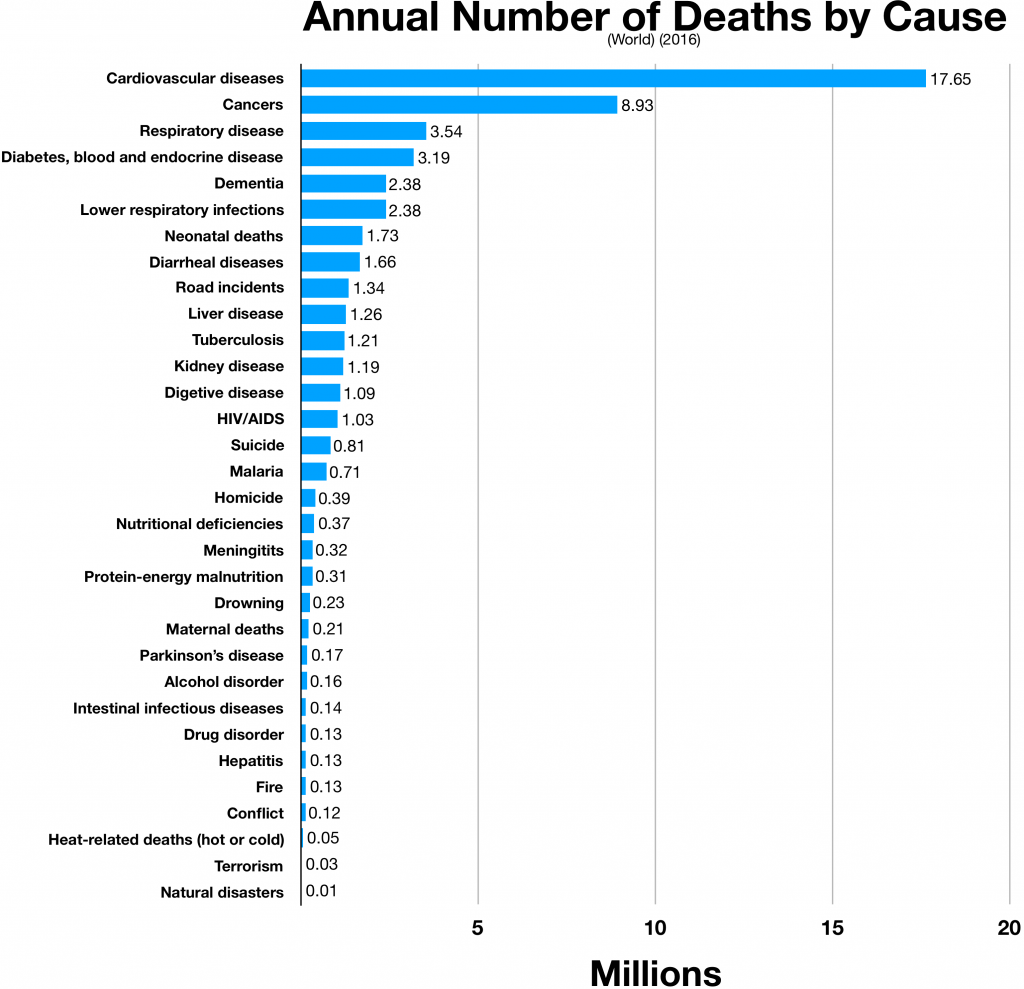
EXAMPLES:
DAILY LIFE: When we decide a friend’s loyalty based on past integrity, trust an economic advisor based on accurate predictions, trust a doctor who explains cause and effect mechanisms of disease, etc. we are using coherence truth.
ACADEMIC EXAMPLE:
Dr. Kawachi from Harvard found that,
“Income inequality alone explained 74% of the variance in murder rates and half of the aggravated assaults…A World Bank sponsored study subsequently confirmed these results on income inequality concluding that, worldwide, homicide and the unequal distribution of resources are inextricably tied.”[7]
WHY DOES THIS MATTER? Sometimes we can’t see whether something is true with our eyes directly, or an issue covers long periods of time or covers many types of evidence and truth is not simple to figure. In these cases, we often use coherence truth methods like the above to help us make the best choices.
DANGERS: When people refuse to acknowledge that a few with a good track record, good cause and effect mechanisms, confirmed predictions, and/or good explanatory power of the facts as evidence for their worldview, you can know that these people do not have a solid grasp on reality. Their views are not the full truth or they are mostly/completely false.
HOW DO WE MAKE TRUTH BASED DECISIONS USING THESE 3 KINDS OF TRUTH?
Usually the view with the majority of evidence is considered truth, but in a few cases, both sides of a contradiction can be true. For example, Jesus is both God and man. Light is both a particle and a wave, and others.
The most important truth is to figure out which ideas/worldviews bring the most benefits to all levels of society, to the whole world, to nature and enable us to contribute the most good to our communities and world. Jesus said it simply, that all laws God gave are based on love to God and man (Matt. 22:37-40). For the Hebrews and Christians, love wasn’t just a feeling, it required generous action, treating the needs of others as equal to our own, after we have taken care of our family needs (1 John 3:17).
Many academics, like Dr. Wilson at Harvard have found that altruistic societies which protect the rights to a decent life for the weakest members of society always end up beating societies that are selfish. So as God said, “Righteousness makes nations great, but sin is a disgrace to any people.” Prov. 14:34
In the past, it was usually easy to see what actions would help or harm people. You could see the effects in the village or community around you easily. But because of technology, globalization and other forces, buying choices now can have major impacts for good or for harm in countries far away from us where we can’t see them. For example, the 5 part series of “Corporations on Trial” shows how toxic chemicals were dumped in 3rd world countries, killing 1000s, and the Chiquita Banana company hired militias to torture and kill dissident workers who were asking for health protection and decent wages:
https://thoughtmaybe.com/corporations-on-trial
(see esp. “Part 1 — Dumping Ground and “Part 5 — Chiquita: Between Life and Law”)
Documentaries like “The High Cost of Low Pay” and many others show that many corporations depend on forcing families off their land to work for very low wages that keep them in debt long term, that they force many independent small businesses to close and many products are made with slave labor, or that corporations are involved in inciting wars and brutal suppression of democracy.
“Localization: a Strategic Alternative to Globalized Authoritarianism” is a good article that shows the problems clearly, but also how growing and buying from local small businesses is a very powerful solution to stop many problems.
https://www.filmsforaction.org/articles/localization-a-strategic-alternative-to-globalized-authoritarianism/
So we need to have a more comprehensive way to determine what is true now than in the past. I suggest that because God said His laws are always based on love and are intended to do good for all levels of society that the best way to find truth with some checks and balances is:
1) Study what God said, because He has far more knowledge than all humanity and what He says has throughout history always been best for the most individuals and also communities, nations and the world.
2) Check our understanding of God with research and science to be sure it is as correct as possible. Why? Because much history shows that many have misunderstood God. For example some religious people tragically supported the horrific forced chattel slavery which the Bible strictly forbids in the original languages as a capital crime (see Ex. 21:16, 1 Tim. 1:8-10).
This is often because:
A) linguistic changes: The Hebrew word for slave, ebed, could refer to forced slavery, voluntary indentured service, or working for a boss.
B) Because God in certain cases changed His laws because times or society changed and a law intended to do good was no longer helpful. For example, God forbade shaving corners of beards because it was a pagan religious ritual, but that religion has disappeared now. So it’s no longer helpful. Sacrifices of course are no longer required because Jesus, the real Lamb, died.
The Bible tells us all God’s laws are based on love and aimed at doing good for all people…that is what godliness is too (Matt. 22:37-40, Neh. 9:13, 1 Thess. 5:15). So research in various fields can in some cases help us correct our misunderstandings of God and make choices to do much more good.
Look especially at systematic reviews of all evidence and studies done to get the best overall picture.
Jesus demonstrated that looking at all evidence on a topic is crucial in Luke 24:25-27. And systematic reviews are a great way to do that.
3) But we should test claims of scientists too as well as our understanding of science. The goal of all science that relates to humans is also supposed to be to do good to all levels of society. But because humans do science, it can be very fallible at times for various reasons:
A) CORRUPTION: Harvard mathemetician Samuel Arbesman and others have found that up to 50% of “facts” in academia are found to be partly/wholly wrong within 50 years (see his book “The Half-Life of Facts”). This is partly because greed and bribery (often from corporations) can corrupt scientists just as they do anything else.
B) FALLACIES: False ways of reasoning like the a priori fallacy of materialistic methodological naturalism (which denies that any evidence can point to God) or theistic presuppositional apologetics (which denies that any evidence can point away from God or away from one’s denominational beliefs) can also pervert and end a genuine search for truth science because these are fallacies that predetermine their answers and discard anything else as “not evidence” or anomalies. The real result of this is that it stop those who hold these views from changing any of their pre-determined beliefs. It makes people immune to any evidence or change to follow truth and chains their minds.
So we need to critique scientists and what they say.. And of course test everything that atheism/secularism says, because almost nothing has failed or caused more loss of human rights and justice than these ideologies.
4) After you have read what God says, tested your understanding of God by research, read research, and tested your understanding of research by what God says, you should come to the same conclusions in almost all areas, at least 95% of the time if not more because God is the author of all real doctrinal truth and all real scientific truth.
“Rightly understood, science and the written word agree, and each sheds light on the other. Together they lead us to God by teaching us something of the wise and beneficent laws through which He works.” Counsels to Parents, Teachers, and Students, 426 (1913). {2MCP 739.3}
If there is still some disagreement, go with what your best understanding of God and He will wink at your ignorance (Acts 17:30) and in time lead us to the full truth (John 16:12) as we are humble and give up pride to follow the majority of evidence wherever it lead.
[1] Illing. Sean. “How fascism works.” Dec 15, 2018. https://www.vox.com/2018/9/19/17847110/how-fascism-works-donald-trump-jason-stanley.
[2] Dodd, Julian. “Recent Work on Truth.” Dec. 17, 2002, www.onlinelibrary.wiley.com/doi/pdf/10.1111/1468-0149.00270.
[3] Dolhenty, Jonathan. “Truth and Certainty”, http://radicalacademy.org/truth-certainty.html. “Criteria of Truth.” Wikipedia, Dec. 6, 2018, en.wikipedia.org/wiki/Criteria_of_truth.
[4] Richard Kirkham. (n.d.). In Wikipedia. Retrieved March 30, 2022, from https://en.wikipedia.org/wiki/Richard_Kirkham. See also: http://philpapers.org/s/Richard%20L.%20Kirkham, and you can read some of his book here:
https://archive.org/details/theoriesoftruthc0000kirk/page/26/mode/2up.
[5]Skerrett, Patrick J. “Harvard to USDA: Check out the Healthy Eating Plate.” Jan. 28, 2016, www.health.harvard.edu/blog/harvard-to-usda-check-out-the-healthy-eating-plate-201109143344. **
[6] Dowling & Yahnke, “A Financial Scorecard: Millennials vs. Baby Boomers.” https://www.dywealth.com/resources/blog/financial-scorecard-millennials-vs-baby-boomers **
[7] Seltzer, Sarah. “A Factor in Mass Murder? Stratification Between Rich and Poor”. August 1, 2012. https://www.alternet.org/hot-news-views/factor-mass-murder-stratification-between-rich-and-poor. **